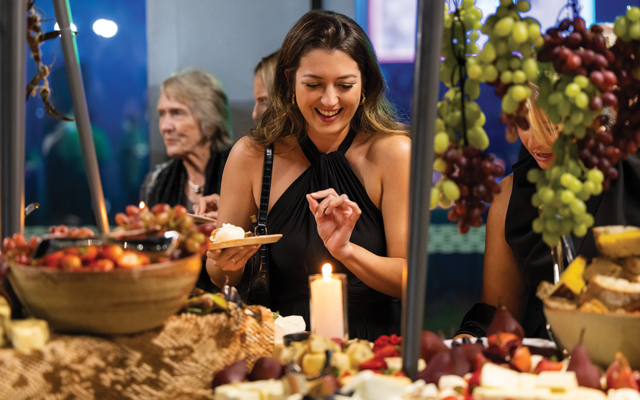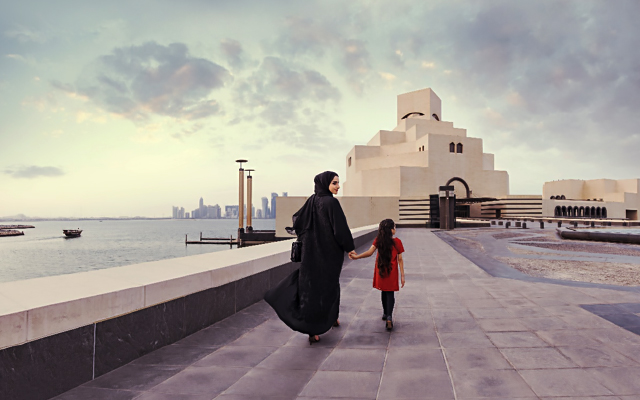Dining elements within business events have morphed into interactive experiences, while doubling up as social opportunities for attendees, finds Rachel AJ Lee

As Covid-related restrictions recede around the world, event caterers, restaurant operators and large venues are seeing event dining returning in full force, and has become an important component among corporates eager to reconnect in-person.
Although social distancing and individual food servings were the norm during events that resumed earlier on post-lockdown, event F&B specialists have noticed a spirited return to live stations, controlled buffet lines, and grazing tables.
Melbourne and Olympic Park’s head of F&B, Rachel Dolan, shared: “We’re seeing a move away from traditional buffet-style services to interactive food experiences.”
For example, during the AIME 2022 Welcome Event, guests were treated to 10 live food stations where they could watch chefs whip up dishes in real-time, while at the inaugural SportNXT leadership summit in April, guests were treated to live-oyster shucking.
A spokesperson from 1-Host – part of Singapore-based F&B, lifestyle & hospitality company 1-Group – shared similar observations: “We are now able to showcase more culinary specialties like live paella stations, live grills and even dessert counters. This has also reduced the pressure of having enough manpower.”
Meanwhile, Craig Squire, director of Cairns-headquartered Ochre Restaurant and Catering, told TTGmice: “Grazing tables are back in vogue for private events, and corporate are mixing up menus; for example, share platters for a course, extended canapes or dessert stations.”
To provide peace of mind and ensure hygiene, Showtime Event Group’s (SEG) director of experience Brad Dabbs shared that “all live stations are manned by chefs who serve guests (directly)”. During the Guinness World Record attempt at the world’s longest grazing table at AIME 2022, individual tongs and sanitiser bottles were also provided.
Over at CWT Meeting & Events, the company actively encourages clients to make use of the food station concept where possible, to lower the chances of cross contamination.
Localised menus are also rising in popularity among organisers, as international delegates return.
Squire noted: “There has also been more interest in native ingredients, which we’ve incorporated into menus. We’ve noticed renewed interested in bush food tasting and cooking demo lunches for partner programmes and are working with two indigenous start-ups to provide a bush food experience before the main meal.”
Alan Pryor, general manager, Kuala Lumpur Convention Centre (KLCC), commented he has noticed a “continuity in localising experiences”, which the venue can provide through its “Malaysia-inspired culinary offerings”.
CWT’s director, Australia & New Zealand, Michelle Sargent, shared: “For a recent incentive group in Fiji, we visited a village and had a local catering company – that specialises in barbecue – assist with lunch. This was a great success due to the locally-sourced produce and our caterers’ familiarity with local cuisine.”
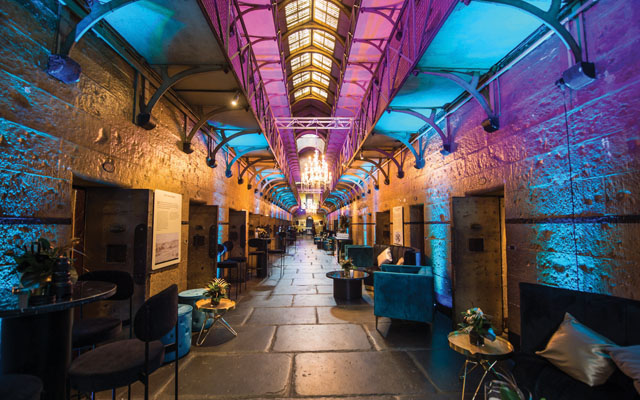
Sustainability status
It is no surprise that sustainability concerns have seeped into event F&B. These days, this movement has expanded beyond food miles and sourcing, to encompass biodegradable items and waste management efforts.
In Singapore, Cedric Nubul, general manager of Hilton Singapore Orchard, makes the effort to “source locally whenever possible, and make sustainable seafood choices with MSC- and ASC-certified produce”.
The hotel also has a waste management programme in place, and utilises compostable and biodegradable, plant-based packaging and reusable bags during events. It also plans to partner with local farming organisations and cultivate an herb garden onsite.
Over in New Zealand, Te Pae Christchurch’s director of culinary service Darren Tait shared that sustainable sourcing has been their “philosophy from day one”, with over “80 per cent of our produce sourced locally”, even though the supplier may not commercially be the cheapest.
Melbourne-headquartered SEG, meanwhile, combats item wastage by using biodegradable products for single-serve options and bamboo utensils, as well as on the food wastage front.
“This includes in-house composting, multiple production kitchens to reduce travel emissions, and an Electrolysis System which creates food grade cleaning supplies that degrade back into water after seven days,” revealed Dabbs.
KLCC partners with Food Aid Foundation to donate extra food that is not served and safe to consume.
“We begin the conversation around food waste management with clients and organisers at an early stage in their event planning to ensure we are well-prepared, and that food wastage is properly managed in a timely manner,” shared Pryor.
Going a step further, KLCC has installed an AI-powered system to track type and quantity of food waste. Currently deployed for small meetings, Pryor plans to implement these for large conventions and banqueting functions.
“This data will enable our chefs to better understand delegates’ food consumption behaviour and engineer menus accordingly, resulting in not only lesser food waste, but also more efficient management of food and production costs.
“For larger functions, we aim to provide this data in a post-event sustainability report to help our clients’ with forward planning of their events,” Pryor added.
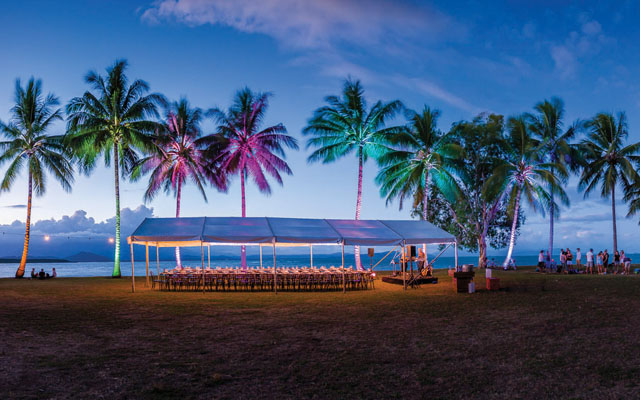
Dietary, space and budget trends
Hotels with event venues and offsite catering services are spotting an increased appetite for wellness-focused and plant-based menus.
Nubul shared: “Guests are more health conscious and are requesting for healthier meal options, including locally-sourced produce and menu items that cater to a variety of diets like gluten intolerance.”
He cited the recent HSBC Women’s World Championship as an example, where the hotel’s culinary team conceptualised a plant-based menu that incorporated the use of Tindle meat.
Ramesh Daryanani, vice president, global sales, Marriott International, Asia Pacific, has also noticed an increase in demand for plant-based options at events.
“Covid-19 has left a lasting impact on our mindsets, especially in the way we make decisions around travel and dining,” he opined.
With the rise in wellness focus comes the challenge of having to cater to varied dietary requirements.
Tait said: “Approximately 15 per cent of guests now have dietary requirements, and this makes service challenging especially for larger events where seating placement isn’t confirmed.”
To reduce the number of changes at events, Te Pae is “creating more menus that include gluten-free and dairy-free options”.
The great outdoors are also highly sought after by organisers, noticed Australian planners.
Dolan shared: “We are seeing a growing desire from clients and event planners for venues with multiple, connected spaces that offer indoor and outdoor experiences.”
She related how CENTREPIECE’s outdoor terraces are “popular locations for dessert and cocktail bars”, while the venue’s central terrace has also hosted pre-function gatherings that allow for outdoor networking.
For Squire, unique experiences offsite have proven to be popular. “Sugar cane farms are hot this year, and we’ve put some time into assisting a farm we work with to develop the shed into a ready-to-go venue.”
Sargent advised venues to “think outside of the box and consider how outdoor areas can be utilised”, such as an unused carpark to incorporate food trucks.
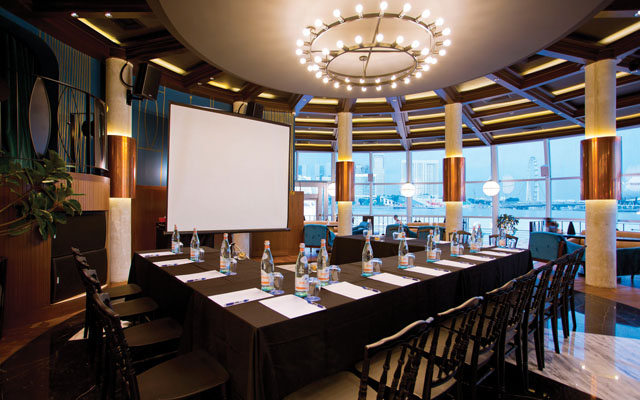
This would provide guests with a casual and fun ambience, along with some fresh air, help venues overcome labour shortages, and work with local vendors who have familiarity with local cuisine, she elaborated.
When asked about corporates’ budgets for dining functions, Sargent said clients are setting aside good money, with some “even (more) than pre-Covid days” as companies seek to reunite staff in a memorable fashion.
Nubul has also not observed “any restrictions on budgets”, because the priority now is on “celebrating being back together and creating memorable experiences.”
“Everyone is appreciating the need to bring people together, so budgets have not been severely impacted,” observed Dabbs for SEG events.
However, when it comes to decision-making, Squire hopes that event organisers will have more respect for suppliers.
“As suppliers, we do our best to supply quotes as soon as possible, but when clients take their time to decide, venues become unavailable. We also take time to host potential clients at venues, talk through the possibilities and provide quotes, but we never hear back from them.
It would be nice to get back to us with a yay or nay,” Squire lamented.

